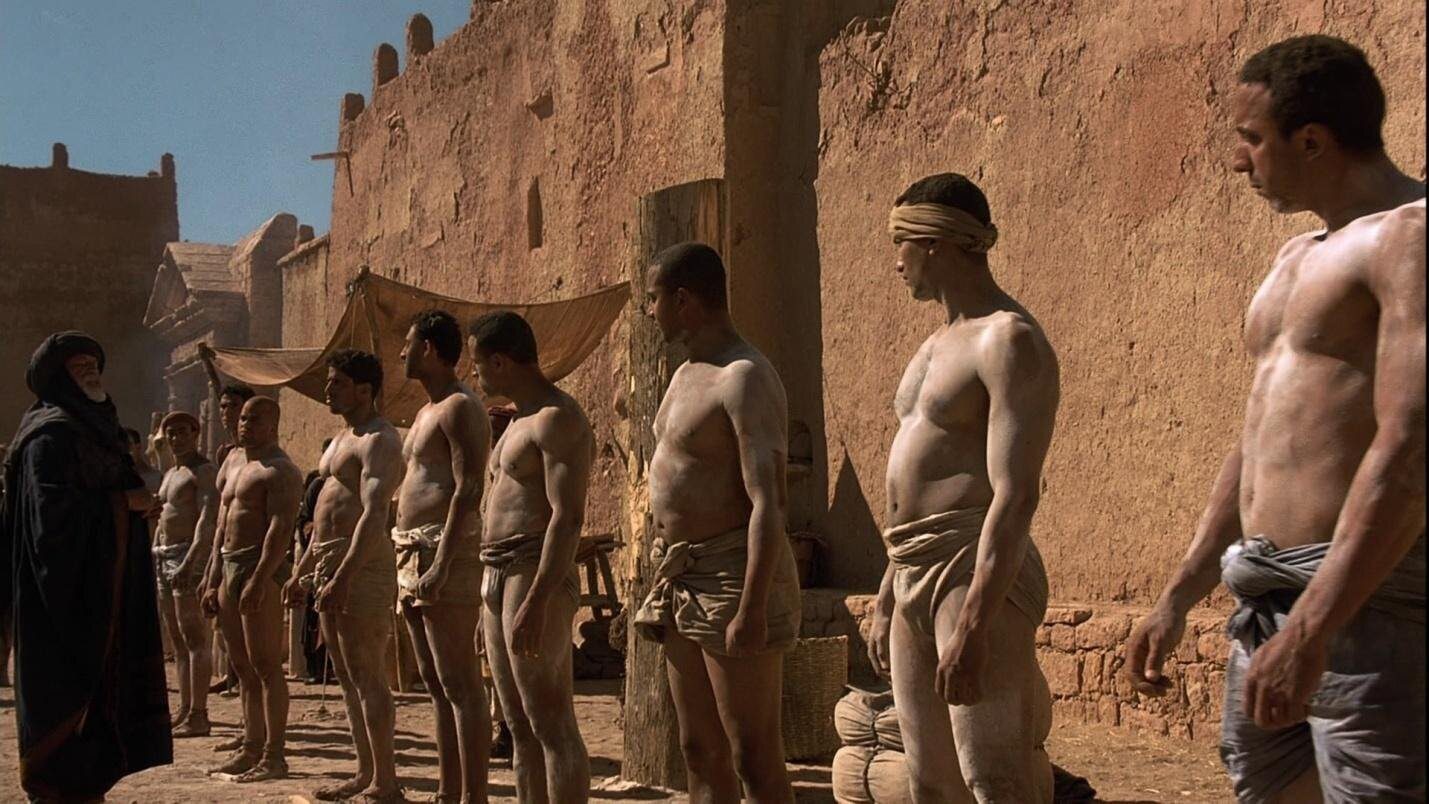What is a recruiter?

Employees are the main asset of any company. The success of a business depends on their coordinated work. Finding and selecting the best ones is not an easy task. That is why a recruiter is one of the most relevant professions.
A qualified employment recruiter can put together the perfect team into a single puzzle and lead the company to success.
So, who is a recruiter, what is recruiting, what are the tasks of an employment recruiter and what is needed to become a professional recruiter?
Recruiter meaning
Recruiting – from the French “recruiter” – to recruit, to hire. In the past, people who joined the military service were called the recruits. Emperors created armies by finding promising new recruits with the help of already experienced warriors – so-called recruits. It were them, who ensured recruitment and selection.
Recruiting in Ancient Rome (“Gladiator” movie)
History remembers the case when Julius Caesar signed an order to pay a substantial monetary reward to each soldier who brought one more recruit into the army.
In Ancient Greece, due to the constant conflicts, warlords were forced to send recruits to distant poor settlements in search of reinforcements. They, in turn, promised a high fee to the most eligible recruits.
After the Second World War, a new trend known as “headhunting” appeared in recruiting. Large American recruitment companies began to use headhunting. They looked out for their customers’ competitors for the best specialists and made them more favorable offers.
What does a recruiter do?
Today, the staffing recruiter job description has not changed significantly, but now they are inviting not only to the army, but also to offices, cabinets and production facilities.
What do recruiters do? Recruiting is the work of personnel finding and selection, and the recruiter is the person responsible for finding the right specialists.
When searching for a job and choosing a company, the candidate always first meets a representative of the recruiting department. It is the recruiting manager who “rejects” or, conversely, gives the green light, depending on the search parameters and the qualities of the applicant.
Why a recruiter is not an HR
Recruiters are often confused with HR managers. This is because recruiting was originally a part of the HR work. But in due course time, the selection of personnel in the organization became a separate direction, an independent profession. Thus, in some companies an HR manager may perform the duties of a recruiter as well, but above all the focus of their work is the onboarding, training and increasing the motivation of employees.
What are recruiter roles and responsibilities?
Recruiter duties are:
- Developing a strategy: based on the objectives of management or the customer, the employment recruiter develops a search plan and a portrait of the perfect candidate.
- Creating a search map: monitoring sources, preparing an offer and posting the vacancy.
- Analysis of resumes and identifying the circle of candidates.
- Initial phone interview.
- The main job interview – an interview with applicants, assessment of professional and personal qualities, testing.
- Reconciliation of candidates with the customer or manager, the choice of the priority and secondary ones.
- Negotiating terms. The recruiter prepares an offer (job offer) for a candidate who agrees to be hired. If consensus cannot be reached, the recruiter moves on to secondary candidates.
Thus, the recruiter is directly focused on selecting a specialist, coordinating his/her candidacy with the employer and negotiating acceptable terms with him/her.
What is the recruiter’s value to the business?
The higher the qualifications of the employees are, the greater are the chances of success for the entire business. And the recruiter’s role is to find the right people, who are:
- professional in their business;
- are communicative and stress-resistant;
- are able to blend in and work as part of a team,
- are interested in working in this very company;
- are ready to accept the conditions offered by the company.
If a recruiter is able to find such a person, his/her value to the company is enormous. Therefore, he/she can get a very high salary and various bonuses for successful hiring.
What are the benefits of being a recruiter?
Businesses holds on tightly to those who find the most effective employees. Companies are willing to fight for such recruiters. At the same time, competition is growing in the marketplace because this job has a number of advantages, such as:
- High salary. If the recruiter is a pro, he/she can count on attractive conditions.
- Working with people. If you like to communicate and you know how to negotiate with unfamiliar people in just 2-3 contacts, this job is for you;
- Opportunity to work remotely. Companies do not always have a recruitment department. More often, recruiters are hired on a remote basis – perfect for those who do not want to spend all day in the office;
- Ability to work for multiple customers at the same time. Most recruiters look for employees for multiple companies at once, earning much more than serving the one company;
- Opportunity to become the company’s image. The hiring manager forms the candidate’s first impression of him/her, is actually a brand ambassador, and this is important.
It is no less important to hear “thank you” from a manager or customer who gets a really valuable employee. Or from a job seeker who got an interesting job due to your recommendation. Maybe he/she will make a career, take an executive position, and it is because you once selected his/her resume and included it in your report.
What qualities does a recruiter need?
To make a career as a recruiter, you shall have specific qualities and skills, such as:
- Punctuality and capacity for work. Deadlines are commonplace for a recruiter, so you need to be prepared for the fact that a significant amount of work will have to be done under tight deadlines;
- Stress resistance. After all, the work is full of serious psychological stresses. The customer always needs to put a specialist on staff as soon as possible, and job seekers are not always ready to change jobs as soon as tomorrow. In addition, it is not always possible to find the best candidates quickly, sometimes the search lasts for months;
- Trainability. A recruiter needs to constantly learn and develop. It is even possible to create original tools for professional recruitment;
- Communication skills. It is necessary to constantly communicate with the customer, applicants, with their own team;
- Persuasive skills. Recruiter shall convince the customer that a particular candidate is the best fit, and the job seeker – that the company and the conditions are great;
- Analytical skills. To effectively select staff, the recruiter shall constantly monitor resources and analyze applicants, correlation of their professional and personal qualities with the requirements of the employer;
- The most important thing for a recruiter is to think outside the box. If this happens, he/she will be successful in this industry.
What kind of education should a recruiter have?
More often the people, who become recruiters, have a higher education in:
- psychology;
- personnel management;
- management;
- journalism;
- advertising and PR.
There are also specialized courses to take and receive the appropriate certificate. Many companies consider having such a certificate as an advantage.
5 habits of a successful recruiter
Here are simple rules that will make the recruiter’s work easier and more effective.
- Individual approach to each candidate. Using a template when communicating with candidates will not bring results – you need to develop your own style and find an individual approach to each person.
- A clear plan of a working day. Even with an excellent memory, it is impossible to keep all tasks in mind. It is better to plan your day in advance – to keep an organizer with tasks and deadlines.
- Automating your routine. Job of an employment recruiter involves a lot of routine work. You do not have to do it manually. Use the automation of such tasks with the help of a special software. CleverStaff will help you with this. Using our platform allows recruiters to save 10 weeks of work time per year.
- Results monitoring. Results need to be tracked every day, this is the best opportunity to improve them. With analytical tools, it will be easier for you to understand which selection and recruitment strategy is effective and which is not.
- Projection into the future. It is important to think not only about current vacancies, but also about future needs. You will be able to build a base of promising candidates that customers will need in the upcoming months.
In modern recruiting, it is important not to be afraid of experiments. A good specialist looks for new opportunities to find candidates, develops his or her own, out-of-the-box solutions, and communicates easily with people. If all of this resonates – working as a recruiter could be your mission.
In case it is the first time you visit our blog. CleverStaff is an innovative applicant tracking system that optimizes key recruiting processes and increases the efficiency of recruiters. Today the software is used in over 30 countries: Ukraine, UK, USA, Switzerland, Thailand and others. The system has already helped professional recruiters to find more than 4 million candidates. Explore all CleverStaff features and boost your recruiting.






